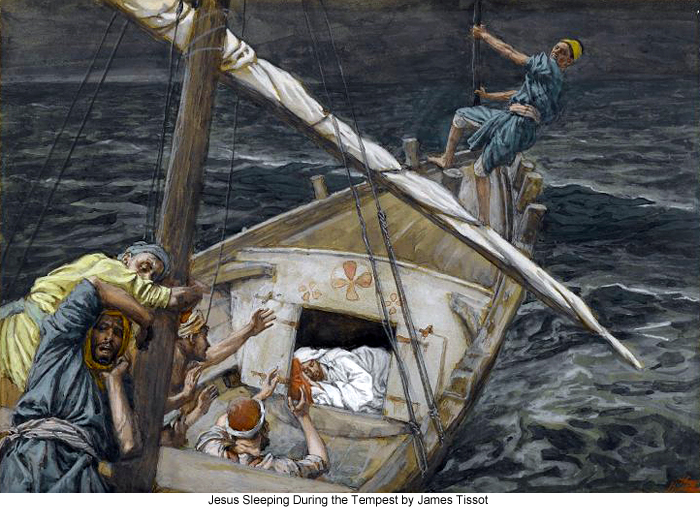SCRUTATIO SCRIPTURAE

A Scrutatio for 4th Sunday of the CHRISTIAN SEASON OF ORDINARY TIME/TIME OF THE CHURCH
Readings from the Anglican Book of Common Prayer
Readings from the Anglican Book of Common Prayer
Job 38:1-11 and 16-18 / Psalm 107:1-32 / II Corinthians 5:14-21 / Mark 4:35-41
Readings for the Pauline/Vatican II Rite of the Holy Sacrifice of the Mass
Job 38:1 and 8-11 / Psalm 107:23-24, 25-26, 28-29 and 30-31 / II Corinthians 5:14-17 / Mark 4:35-41
_-_James_Tissot_-_overall.jpg)
Readings for the Tridentine Rite of the Holy Sacrifice of the Mass
Introit: Psalm 27:1-2 and 3
Epistle: Romans 8:18-23
Gradual and Alleluia: Psalm 79:9-10 and 9:7-9
Gospel
Luke 5:1-11
Offertory:
Communion Antiphon:
Psalm 18:2